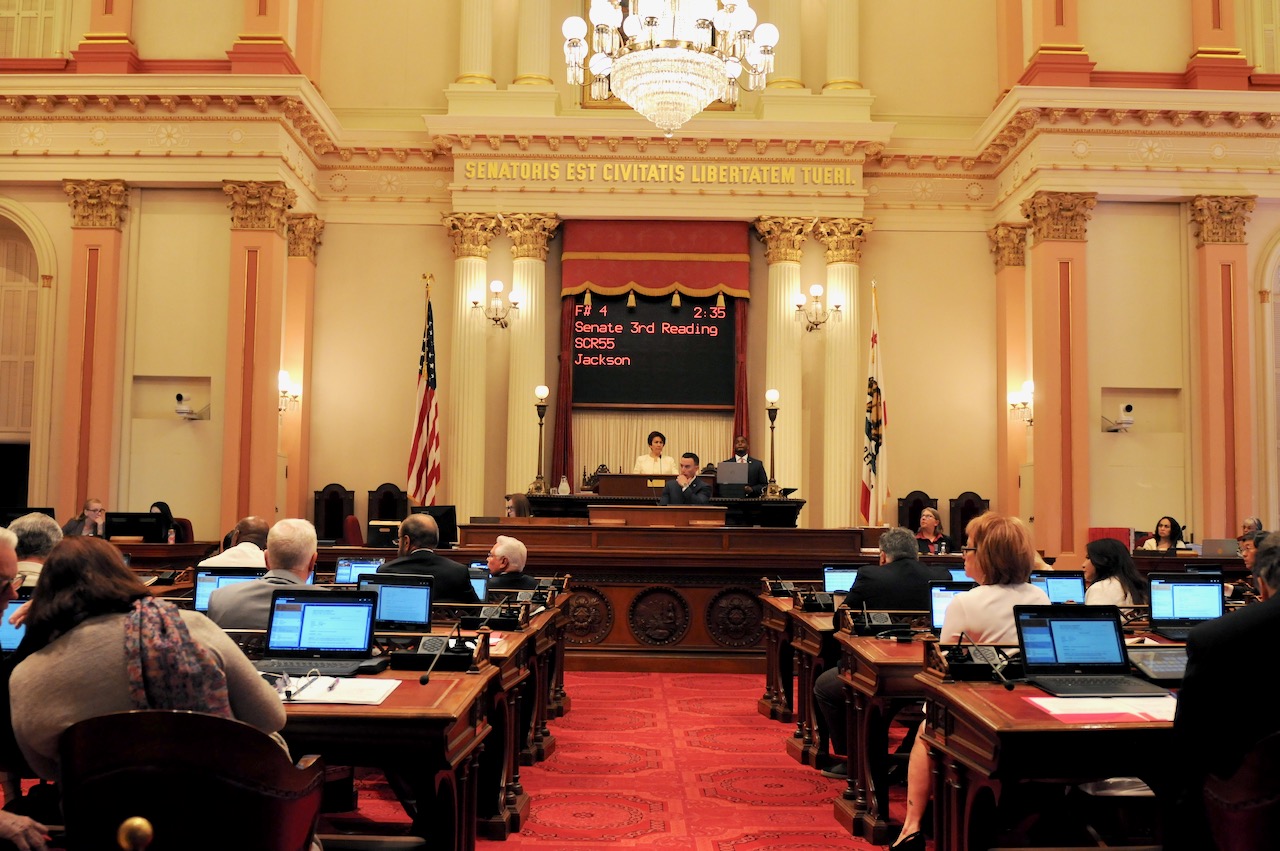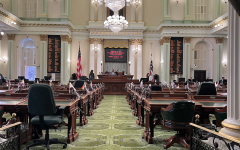
California State Capitol. (Photo: Kevin Sanders for California Globe)
Frequently Asked Questions about the Legislature in the Rulemaking Process
Can the Legislature review a regulation?
By Chris Micheli, March 26, 2024 2:30 am
How many rulemaking bodies are in California state government? There are over 200 agencies, departments, boards, and commissions that can make public policy via their authority to adopt regulations, often referred to as their rule-making authority.
Can the California Legislature impact the rulemaking process? There are several ways in which the Legislature can influence the rule-making activities of state executive branch agencies, primarily through the lawmaking and budgetary processes.
What can the Legislature do through the legislative process? The Legislature can adopt statutory changes to expand or limit a specific state agency’s authority to adopt regulations.
What can the Legislature do through the budget process? The Legislature can utilize the “power of the purse strings” through the budget process to persuade a state agency’s rule-making actions.
Can the Legislature review a regulation? Yes, under the Joint Rules of the California Legislature, the Joint Committee on Rules, as well as the respective Rules Committees of both the Assembly and Senate, may approve any request for a priority review of a regulation pursuant to Section 11349.7 of the Government Code.
What happens if the Legislature approves a request for a priority review of a regulation? If such a request is approved, the Joint Rules Committee must submit any approved requests to the Office of Administrative Law.
Can individual legislators request regulations be reviewed? Under the Joint Rules, any Member of the Senate may request the Senate Committee on Rules, and any Member of the Assembly may request the Speaker of the Assembly, to direct a standing committee of their respective houses, or the Office of Research of his or her respective house, to study any proposed or existing regulation or group of related regulations.
What happens with an individual legislator’s request for regulatory review? Upon receipt of a study request, the Senate Committee on Rules or the Speaker of the Assembly determines whether a study will be made of the regulation(s).
What standards are used in reviewing individual legislator requests? In reviewing the request, the Senate Committee on Rules or the Speaker of the Assembly must determine (1) the cost of making the study; (2) the potential public benefit to be derived from the study; and, (3) the scope of the study.
What is reviewed under a study of a regulation? Under the Joint Rules, the study may consider, among other relevant issues, whether the proposed or existing regulation:
(1) Exceeds the agency’s statutory authority.
(2) Fails to conform to the legislative intent of the enabling statute.
(3) Contradicts or duplicates other regulations adopted by federal, state or local agencies.
(4) Involves an excessive delegation of regulatory authority to a particular state agency.
(5) Unfairly burdens particular elements of the public.
(6) Imposes social or economic costs that outweigh its intended benefits to the public.
(7) Imposes unreasonable penalties for violation.
What happens if the state agency chooses to continue with its rulemaking? In the event that a state agency takes a regulatory action that the reviewing entity finds to be unacceptable, the entity must file a report for publication in the Daily Journal of its respective house indicating the specific reasons why the regulatory action should not have been taken. The report may include a recommendation that the Legislature adopt a concurrent resolution requesting the state agency to reconsider its action or that the Legislature enact a statute to restrict the regulatory powers of the state agency taking the action.
- Legislative Intent Does Not Equate to a Mandate - April 27, 2024
- Frequently Asked Questions about State Agency Ethics Training - April 26, 2024
- Frequently Asked Questions about When Elected Officials Take Office - April 25, 2024




